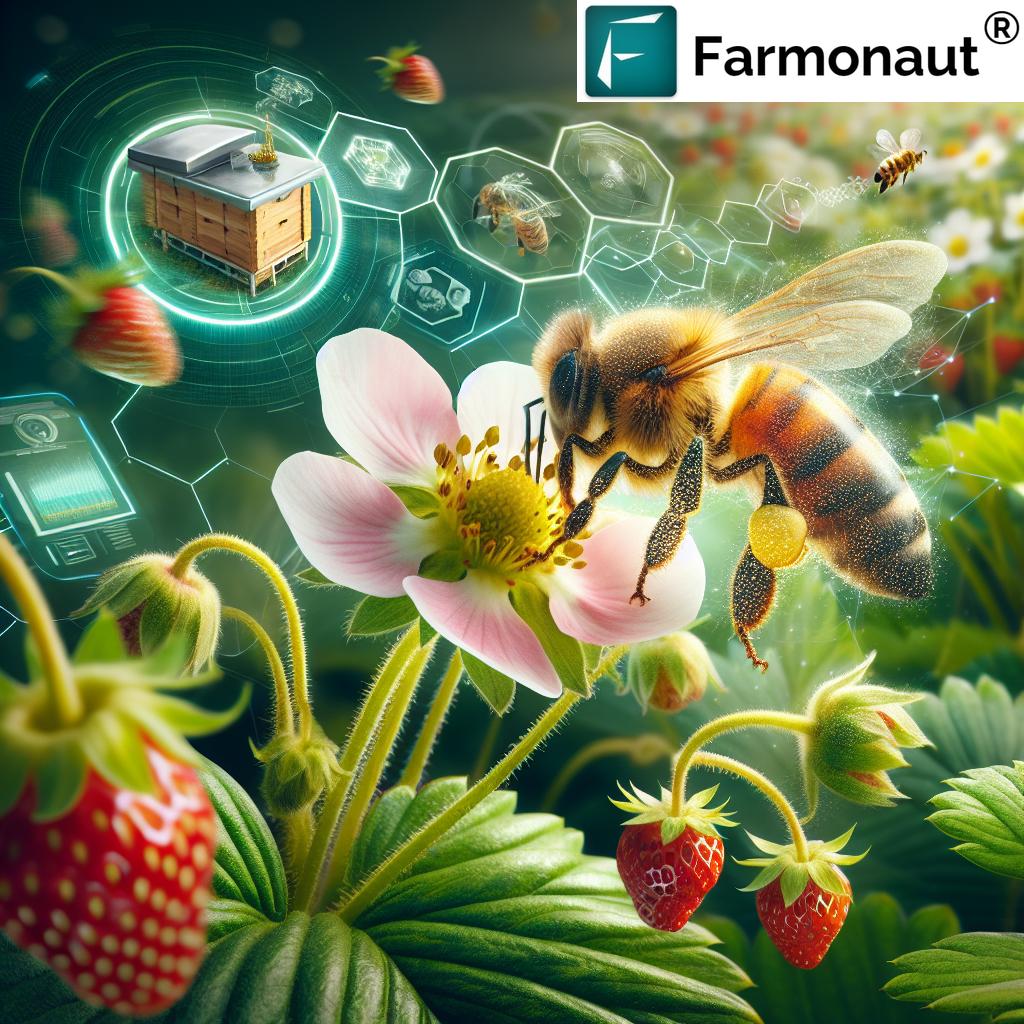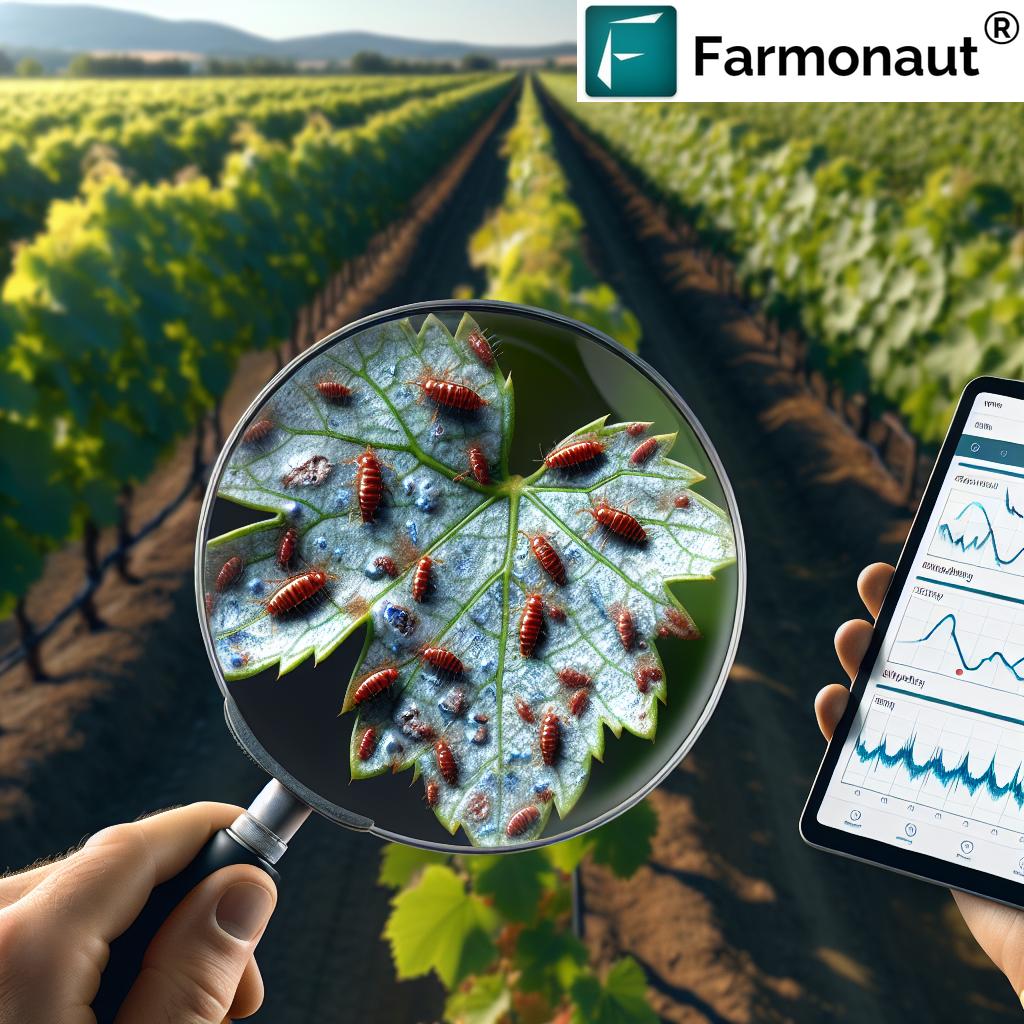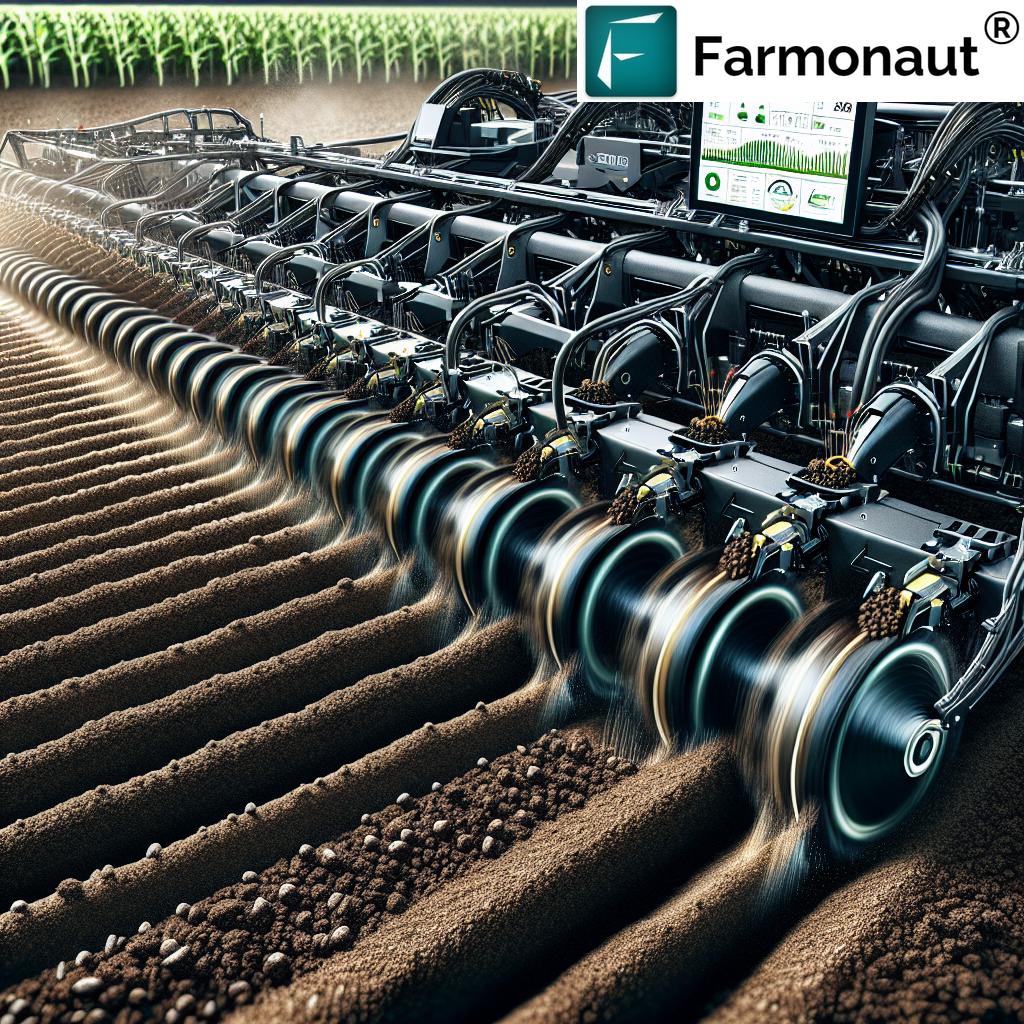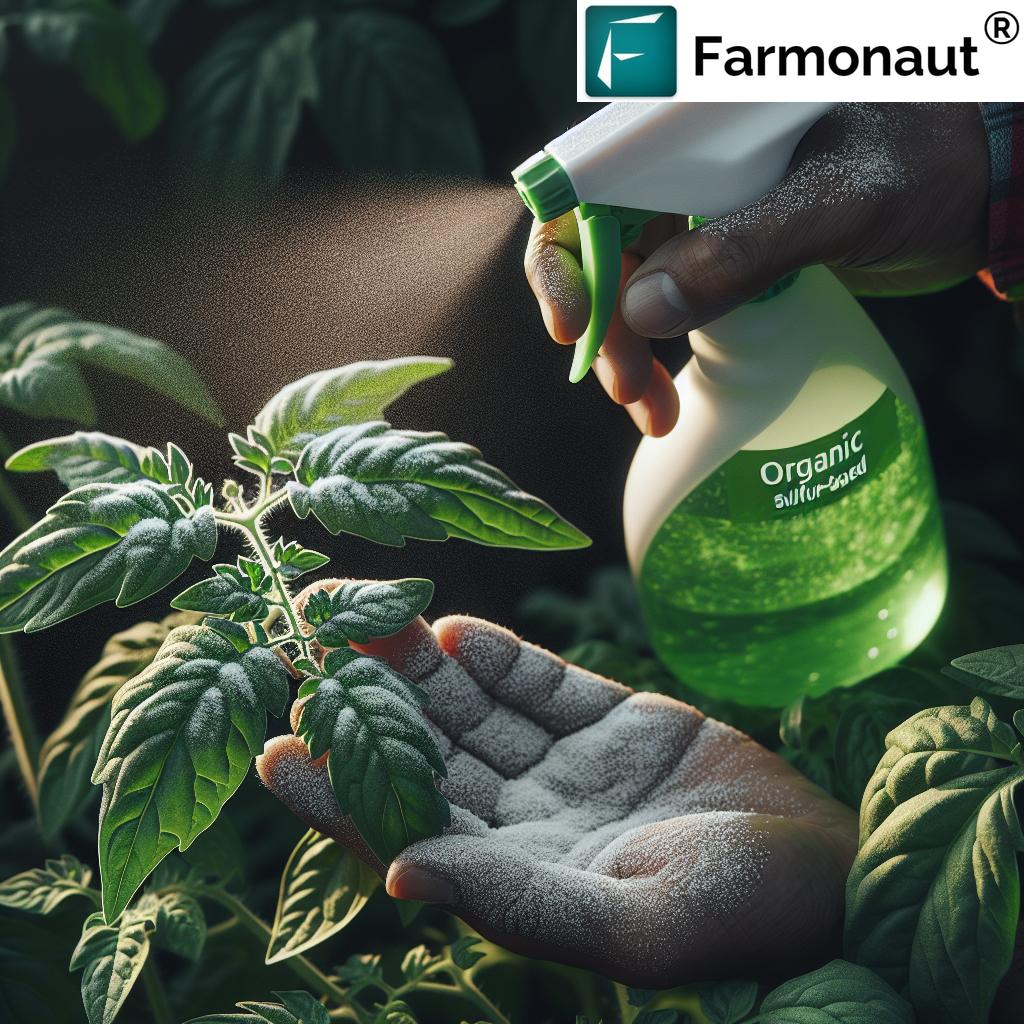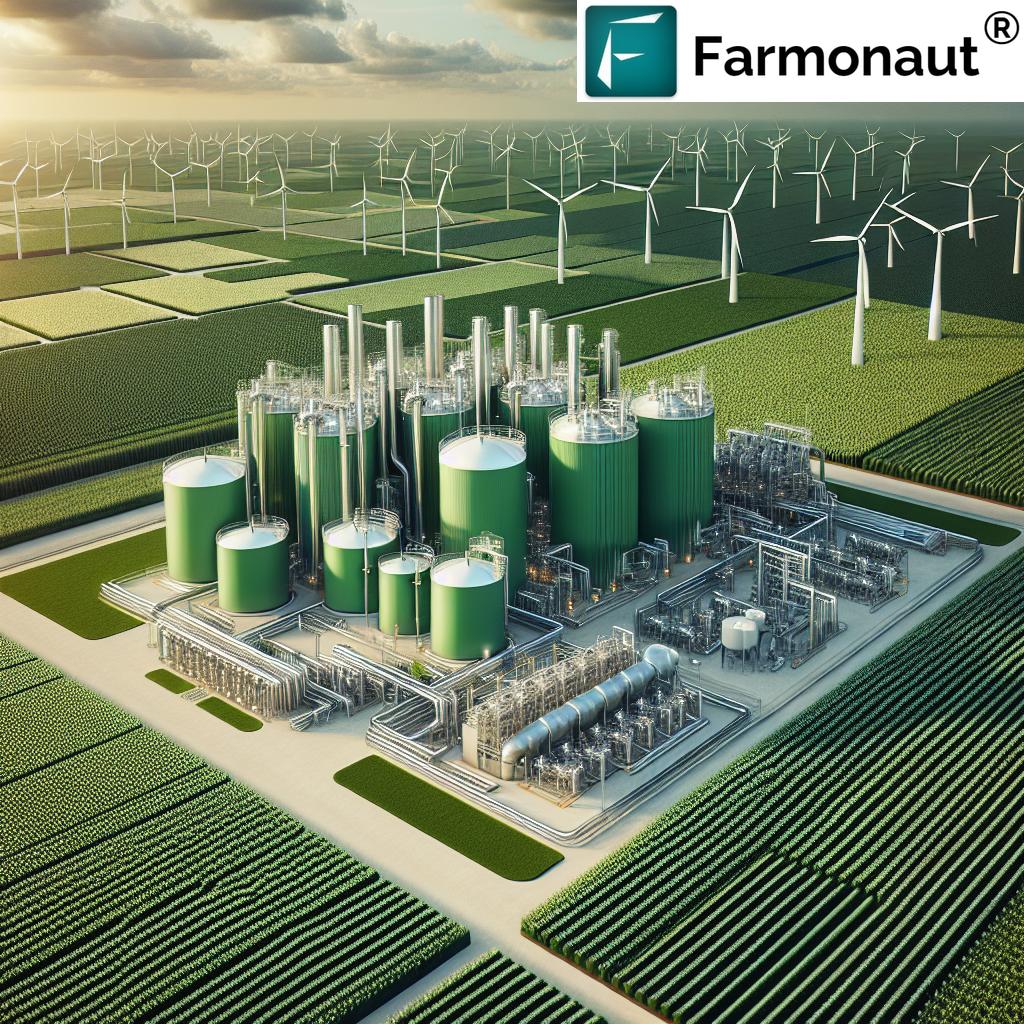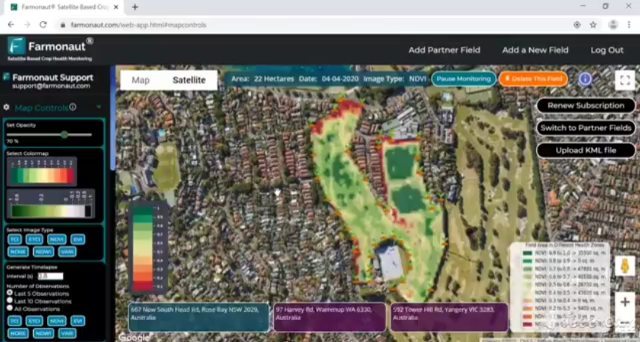Cultivating Cotton in India: Unveiling the Secrets of Optimal Soil Selection and Management
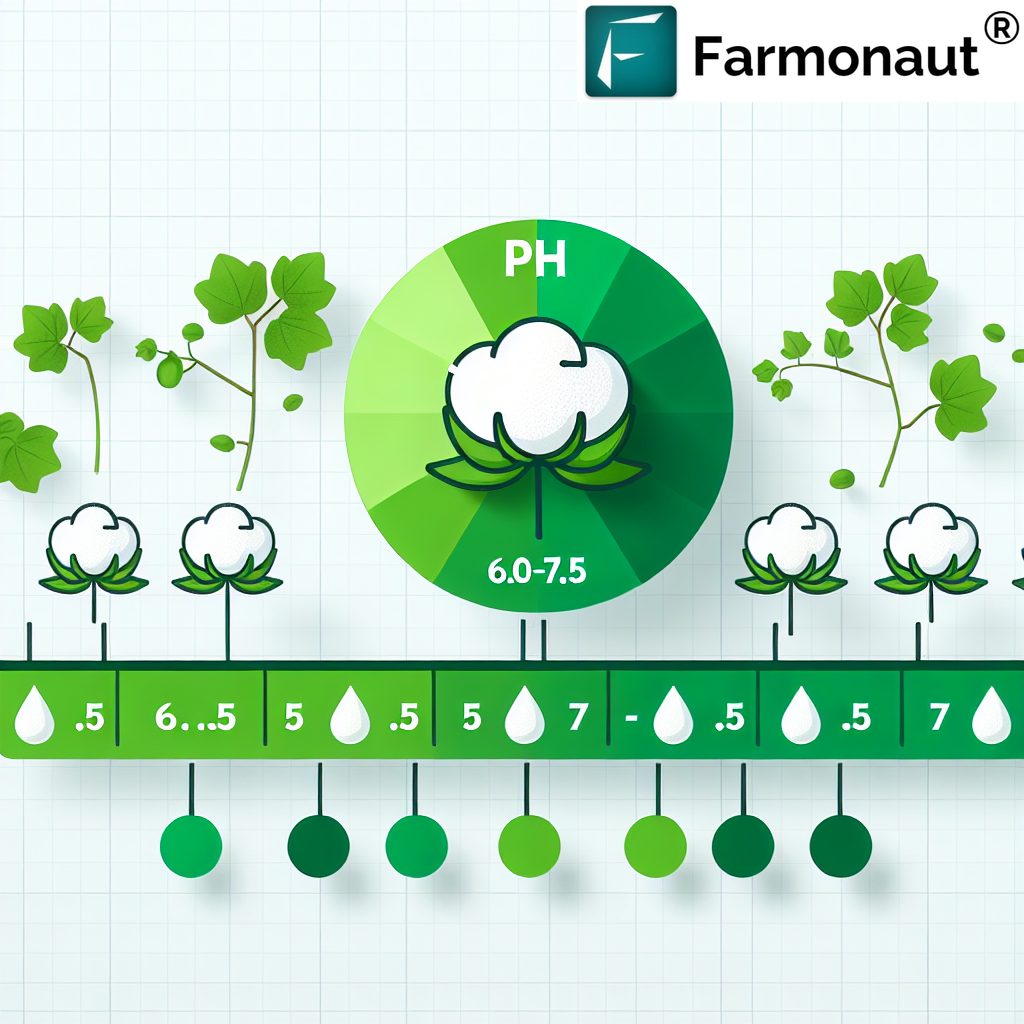
At Farmonaut, we understand the critical role that soil plays in successful cotton cultivation. As pioneers in agricultural technology, we’re committed to helping farmers across India maximize their cotton yields through informed soil selection and management practices. In this comprehensive guide, we’ll delve deep into the intricacies of cotton cultivation, focusing on the best soil for cotton cultivation in India, optimal pH levels, and sustainable practices to combat soil depletion.
Understanding Cotton’s Soil Requirements
Cotton is a versatile crop, but it thrives best in specific soil conditions. Let’s explore the characteristics of the ideal soil for cotton cultivation:
- Texture: Well-draining, deep loamy soils
- Depth: At least 1 meter for proper root development
- Organic Matter: High content for nutrient retention
- Water Holding Capacity: Moderate to ensure proper moisture levels
Which Soil is Best for Growing Cotton in India?
India’s diverse geography offers various soil types suitable for cotton cultivation. However, some soils stand out for their ability to support healthy cotton growth:
- Black Cotton Soil (Regur): Found in the Deccan Plateau, this soil is rich in clay content and has excellent water retention properties. It’s considered one of the best soils for cotton cultivation in India.
- Alluvial Soil: Prevalent in the Indo-Gangetic plains, this soil is fertile and well-draining, making it ideal for cotton.
- Red and Yellow Soils: Common in peninsular India, these soils can support cotton cultivation when properly managed.
At Farmonaut, our satellite-based crop monitoring system can help farmers identify the soil types in their fields, enabling them to make informed decisions about cotton cultivation. Learn more about our soil analysis capabilities.
Cotton Soil pH: Finding the Sweet Spot
Cotton soil pH plays a crucial role in nutrient availability and overall plant health. The optimal pH range for cotton cultivation is between 6.0 and 7.5. Let’s break down the importance of pH:
- pH 6.0-6.5: Ideal for nutrient availability
- pH 6.5-7.0: Optimal for root development and microbial activity
- pH 7.0-7.5: Suitable, but may require careful nutrient management
Maintaining the right pH is essential for maximizing cotton yields. Our Jeevn AI Advisory System can provide real-time recommendations for soil pH management based on satellite data and local conditions. Download our app to access these insights.
In Which Soil is Cotton Grown in India?
Cotton cultivation in India spans various regions, each with its unique soil characteristics. Here’s a breakdown of the major cotton-growing areas and their soil types:
- Gujarat: Black cotton soil and alluvial soil
- Maharashtra: Deep black soil (regur)
- Punjab and Haryana: Alluvial soil
- Andhra Pradesh and Telangana: Red and black soils
- Karnataka: Red sandy loams and black soils
Understanding the specific soil characteristics of your region is crucial for successful cotton cultivation. Our satellite-based monitoring system can provide detailed soil maps of your farm, helping you make informed decisions about crop management. Get started with Farmonaut today.
Cotton Soil Depletion: Challenges and Solutions
Cotton soil depletion is a significant concern for long-term sustainability in cotton farming. Continuous cotton cultivation can lead to:
- Nutrient depletion
- Soil structure degradation
- Reduced organic matter content
- Increased susceptibility to erosion
To combat these issues, we recommend the following sustainable practices:
- Crop Rotation: Alternating cotton with legumes or cereals can help restore soil nutrients and break pest cycles.
- Cover Cropping: Planting cover crops during the off-season can prevent erosion and add organic matter to the soil.
- Conservation Tillage: Minimizing soil disturbance helps maintain soil structure and organic matter content.
- Precision Nutrient Management: Using our satellite-based monitoring system, farmers can apply nutrients precisely where and when they’re needed, reducing waste and preventing over-fertilization.
Our advanced satellite monitoring technology can help you track soil health over time, allowing for early detection of depletion signs and timely interventions. Learn more about our API for developers.
Which Soil is Suitable for Cotton Cultivation?
While cotton can grow in various soil types, certain characteristics make a soil particularly suitable for cotton cultivation:
- Good Drainage: Cotton roots are sensitive to waterlogging, so well-draining soils are essential.
- Adequate Depth: A soil depth of at least 1 meter allows for proper root development.
- Balanced Nutrient Content: Soils rich in nitrogen, phosphorus, and potassium support healthy cotton growth.
- Appropriate pH: As mentioned earlier, a pH range of 6.0-7.5 is ideal for cotton.
- Organic Matter: Soils with high organic matter content provide better nutrient retention and soil structure.
Our satellite-based soil analysis can help you determine if your soil meets these criteria, enabling you to make informed decisions about cotton cultivation or necessary soil amendments.

Farmonaut’s Role in Optimizing Cotton Cultivation
At Farmonaut, we’re committed to revolutionizing cotton cultivation through advanced technology and data-driven insights. Our satellite-based farm management solutions offer several advantages over traditional methods:
| Feature | Farmonaut Satellite System | Drone-based Monitoring | IoT-based Monitoring |
|---|---|---|---|
| Coverage Area | Large-scale (entire farms) | Limited by flight time and regulations | Limited to sensor placement |
| Frequency of Data Collection | Regular (every few days) | As needed, but requires manual operation | Continuous, but limited to sensor locations |
| Cost-effectiveness | High (no hardware required) | Moderate (initial equipment cost) | Low (high initial and maintenance costs) |
| Data Analysis | Advanced AI and machine learning | Requires specialized software | Often limited to basic metrics |
| Ease of Use | User-friendly mobile and web apps | Requires trained operators | Can be complex to set up and maintain |
Our comprehensive suite of tools includes:
- Satellite-Based Crop Health Monitoring: Real-time insights into vegetation health, soil moisture, and other critical metrics.
- Jeevn AI Advisory System: Personalized recommendations for crop management based on satellite data and local conditions.
- Blockchain-Based Traceability: Ensure transparency and authenticity in your cotton supply chain.
- Carbon Footprinting: Monitor and reduce your environmental impact in cotton cultivation.
By leveraging these advanced technologies, we help cotton farmers across India optimize their yields, reduce resource wastage, and implement sustainable practices.
Sustainable Cotton Cultivation Practices
To ensure long-term soil health and sustainable cotton production, we recommend the following practices:
- Integrated Pest Management (IPM): Reduce reliance on chemical pesticides by employing natural predators and resistant cotton varieties.
- Water Conservation: Implement efficient irrigation systems and use our satellite-based soil moisture monitoring to optimize water usage.
- Organic Matter Management: Incorporate crop residues and organic amendments to improve soil structure and fertility.
- Precision Agriculture: Utilize our satellite imagery and AI-driven insights to apply inputs precisely where needed, reducing waste and environmental impact.
- Soil Testing and Monitoring: Regularly assess soil health using our advanced analytics to detect and address issues early.
By adopting these practices and leveraging Farmonaut’s cutting-edge technology, cotton farmers can ensure the long-term health of their soils while maximizing yields and profitability.
The Future of Cotton Cultivation in India
As we look to the future, the integration of advanced technologies like satellite monitoring, AI, and blockchain will play an increasingly crucial role in cotton cultivation. At Farmonaut, we’re committed to staying at the forefront of these innovations, providing Indian cotton farmers with the tools they need to thrive in a changing agricultural landscape.
Some emerging trends we’re excited about include:
- Climate-Resilient Cotton Varieties: Developing cotton strains that can withstand extreme weather conditions.
- Precision Irrigation Systems: Integrating our satellite data with smart irrigation technologies for optimal water use.
- AI-Driven Predictive Analytics: Enhancing our Jeevn AI system to provide even more accurate yield predictions and management recommendations.
- Blockchain for Sustainable Cotton: Expanding our traceability solutions to create a fully transparent and sustainable cotton supply chain.
By embracing these innovations and continuing to focus on soil health and sustainability, we believe that Indian cotton farmers can look forward to a prosperous and environmentally responsible future.
Conclusion
Choosing the best soil for cotton cultivation in India is a crucial first step towards successful and sustainable cotton farming. By understanding the unique characteristics of different soil types, managing soil pH, and implementing practices to combat soil depletion, farmers can significantly improve their cotton yields and long-term soil health.
At Farmonaut, we’re dedicated to supporting cotton farmers throughout India with our advanced satellite-based monitoring systems, AI-driven insights, and sustainable agriculture solutions. By combining traditional farming wisdom with cutting-edge technology, we’re helping to shape the future of cotton cultivation in India.
Ready to revolutionize your cotton farming practices? Get started with Farmonaut today and unlock the full potential of your cotton fields.
FAQs
- Q: What is the ideal soil type for cotton cultivation in India?
A: The best soil for cotton cultivation in India is typically deep, well-draining black cotton soil (regur) or alluvial soil. However, cotton can be grown successfully in various soil types with proper management. - Q: How does soil pH affect cotton growth?
A: Cotton soil pH significantly influences nutrient availability and overall plant health. The optimal pH range for cotton cultivation is between 6.0 and 7.5, with 6.5-7.0 being ideal for root development and microbial activity. - Q: How can I prevent cotton soil depletion?
A: To combat cotton soil depletion, implement practices such as crop rotation, cover cropping, conservation tillage, and precision nutrient management. Regular soil testing and monitoring using advanced technologies like Farmonaut’s satellite-based system can also help detect and address depletion issues early. - Q: Can cotton be grown in sandy soils?
A: While cotton prefers loamy soils, it can be grown in sandy soils with proper management. This includes frequent irrigation, careful nutrient management, and the addition of organic matter to improve soil structure and water retention. - Q: How does Farmonaut’s technology help in cotton cultivation?
A: Farmonaut’s satellite-based monitoring system provides real-time insights into crop health, soil moisture, and other critical metrics. Our Jeevn AI Advisory System offers personalized recommendations for crop management, while our blockchain-based traceability solutions ensure transparency in the cotton supply chain. - Q: What are the signs of unsuitable soil for cotton cultivation?
A: Signs of unsuitable soil for cotton cultivation include poor drainage, shallow depth, extreme pH levels (below 5.5 or above 8.0), low organic matter content, and high salinity. Our satellite-based soil analysis can help identify these issues before planting. - Q: How often should I test my soil for cotton cultivation?
A: We recommend conducting comprehensive soil tests at least once a year, preferably before planting. However, with Farmonaut’s continuous satellite monitoring, you can track soil health indicators throughout the growing season and make timely interventions as needed.
Have more questions about cotton cultivation or how Farmonaut can help optimize your farming practices? Don’t hesitate to reach out to our expert team. We’re here to help you achieve the best possible results in your cotton farming endeavors.
Subscribe to Farmonaut
Ready to take your cotton cultivation to the next level? Subscribe to Farmonaut’s advanced satellite-based farm management solutions and unlock the full potential of your fields.
By subscribing to Farmonaut, you’ll gain access to our full suite of tools, including satellite-based crop monitoring, AI-driven advisory services, and much more. Join the future of agriculture today!




